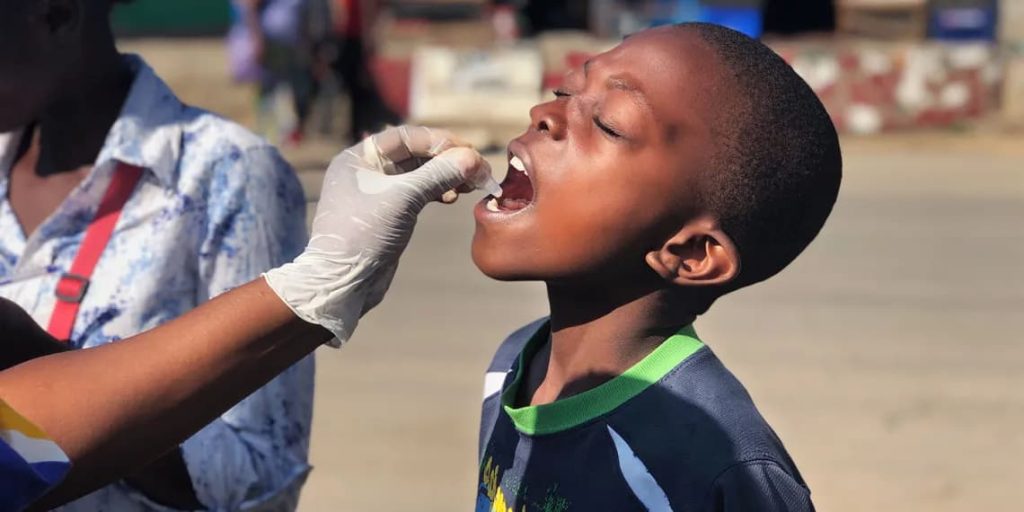The Paediatric Association of Nigeria (PAN), still basking in the excitement of the recently concluded annual conference in Gombe, where the huge success in the Human Papillomavirus Vaccination roll out in the 36 states of the federation and FCT was celebrated, received with dismay, media reports of outbreaks of some vaccine-preventable diseases in the country. An outbreak of diphtheria occurred in a Lagos school while there was an outbreak of cerebrospinal meningitis in some parts of northwest Nigeria.
PAN is aware that these outbreaks suggest among other things the need for closer looks at our national immunization program. Cerebrospinal meningitis is known to be endemic in the northern part of the country that falls within the meningitic belt of the Sahara, and pulses of outbreaks often occur at the peak of the dry season. In April 2024, Nigeria was reportedly the first country in the entire world to roll out a new five-in-one vaccine for cerebrospinal meningitis. The WHO-recommended vaccine targets five strains of the bacteria known to cause cerebrospinal meningitis, the Meningococcus.
The meningococcal outbreak in northern Nigeria is a reason to ask questions about the progress of the new meningococcal vaccine roll-out. Similarly, the diphtheria outbreak in Lagos raises questions about the immunization status of children admitted into schools. Children who are partly vaccinated or whose immune responses to primary immunization have waned, serve as reservoir from which outbreaks are launched. The concerned State Governments must be commended for their quick responses to the outbreaks. PAN was notably part of the first response in Lagos. So far, confirmed and suspected cases are hospitalized while the high-risk population (close contacts of the cases) are being vaccinated and the general public is being educated. In Lagos, health workers are also being vaccinated. There is also an ongoing surveillance activity and the major hospitals in the state have been put on alert of preparedness.
PAN notes that the current national immunization program only makes provision for primary diphtheria vaccination within the first fourteen weeks of life without official provisions for booster dosing yet. Although the WHO recommends three booster doses of diphtheria vaccine to be administered at 12-23 months, 4-7 years and 9-15 years, this is yet to be operational in the country.
Episodic outbreaks of vaccine-preventable diseases reflect the failure of the immunization program and the infection prevention and control activities in general. Children should be taught basic personal hygiene, including cough hygiene as this is a sure way to slow down the spread of infective droplets. Overcrowding is a strong risk factor for the spread of diphtheria and cerebrospinal meningitis and this should be taken into cognizance when designing residential homes and school hostels and dormitories. The school health program needs to be re-invigorated, especially in the areas of policy review, implementation and utilization of standardised pre-entry medical fitness documentations as it concerns immunization status of students and proper linkage to health services. This step will play great roles in the prevention, early detection and in curtailing the spread of infections among school children.
Government, at all levels, is encouraged to consider developing blueprints for preparedness against disease outbreaks, not just preparedness for disasters and accidents. The disease outbreak preparedness should be incorporated into the annual budget. It should encompass specific public education, clinical and laboratory surveillance to confirm cases, multi-sectoral collaborations, facilities for quarantine and isolation, contact tracing, post-exposure prophylactic measures, and treatment of confirmed cases. This will improve the speed and quality of government response to disease outbreaks.
The government also needs to invest more in vaccine procurement to create resources for introducing booster dosing. It is a scientific fact that the protection conferred on children following primary vaccination in early infancy wanes with time, thus predisposing them to natural infections, without booster dosing. It is attractive to make the booster dosing school-based since the school provides ready access to a catchment population. The schedule should be reviewed to include booster doses of diphtheria vaccines as recommended by the WHO. The school health program will be an effective tool of implementation of these innovations.
Parents are encouraged to ensure their children are fully vaccinated and missed doses are promptly taken at the very next opportunity. Such vital information as the actual vaccination history should be disclosed during pre-admission medical screening so infection risks can be appropriately classified and precautionary measures applied by the school management. Community involvement is also important as a potent weapon against vaccine hesitancy which is still a formidable force against satisfactory vaccine coverage.
PAN has always been in the fore front of the vanguard for the survival of children in Nigeria through strong advocacies and networking. We are currently working on improving the school health program on a national scale. We are also willing to provide the needed technical supports to reduce the frequency and impact of outbreaks of vaccine-preventable diseases.
Long live the Federal Republic of Nigeria
Long live the Nigerian Child.
Long live PAN.





